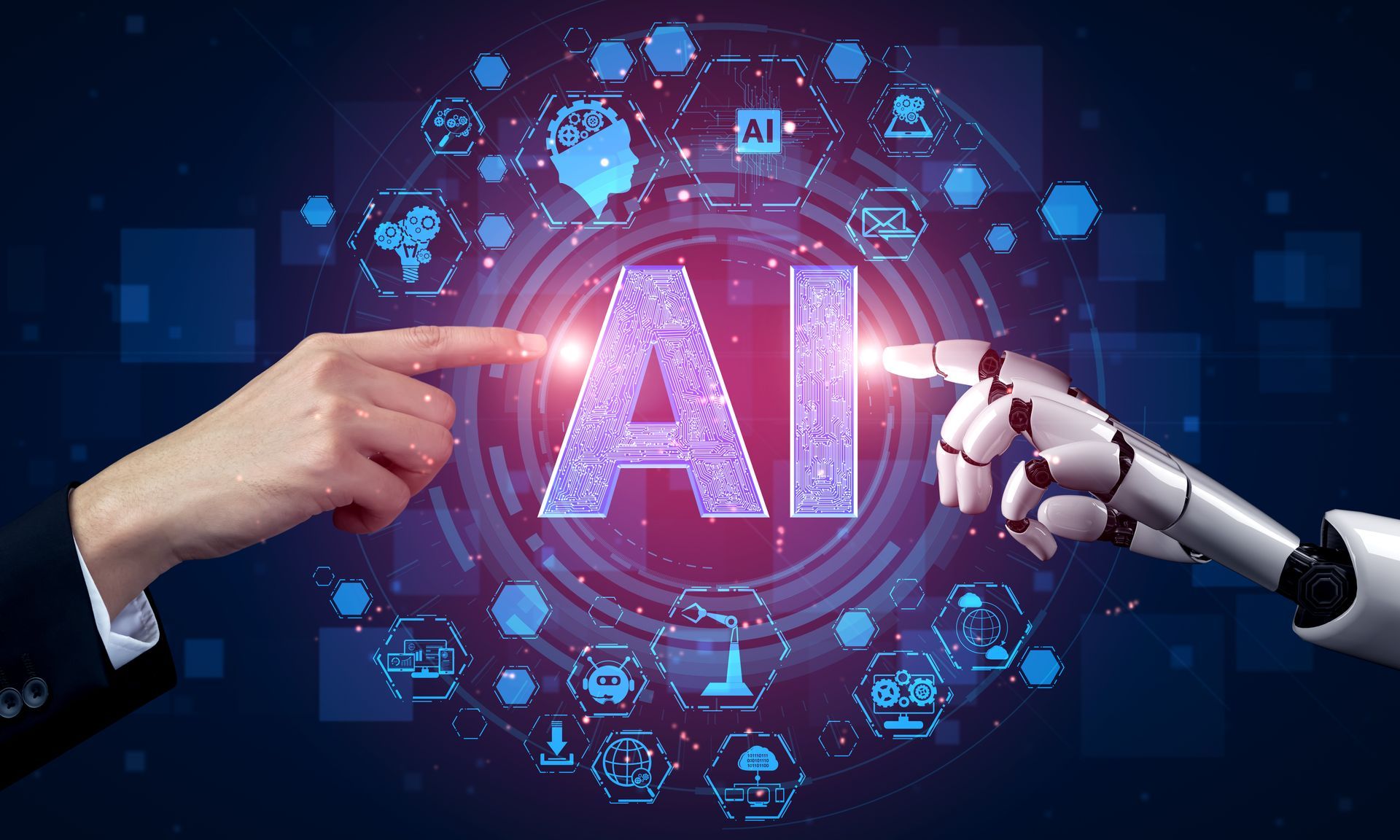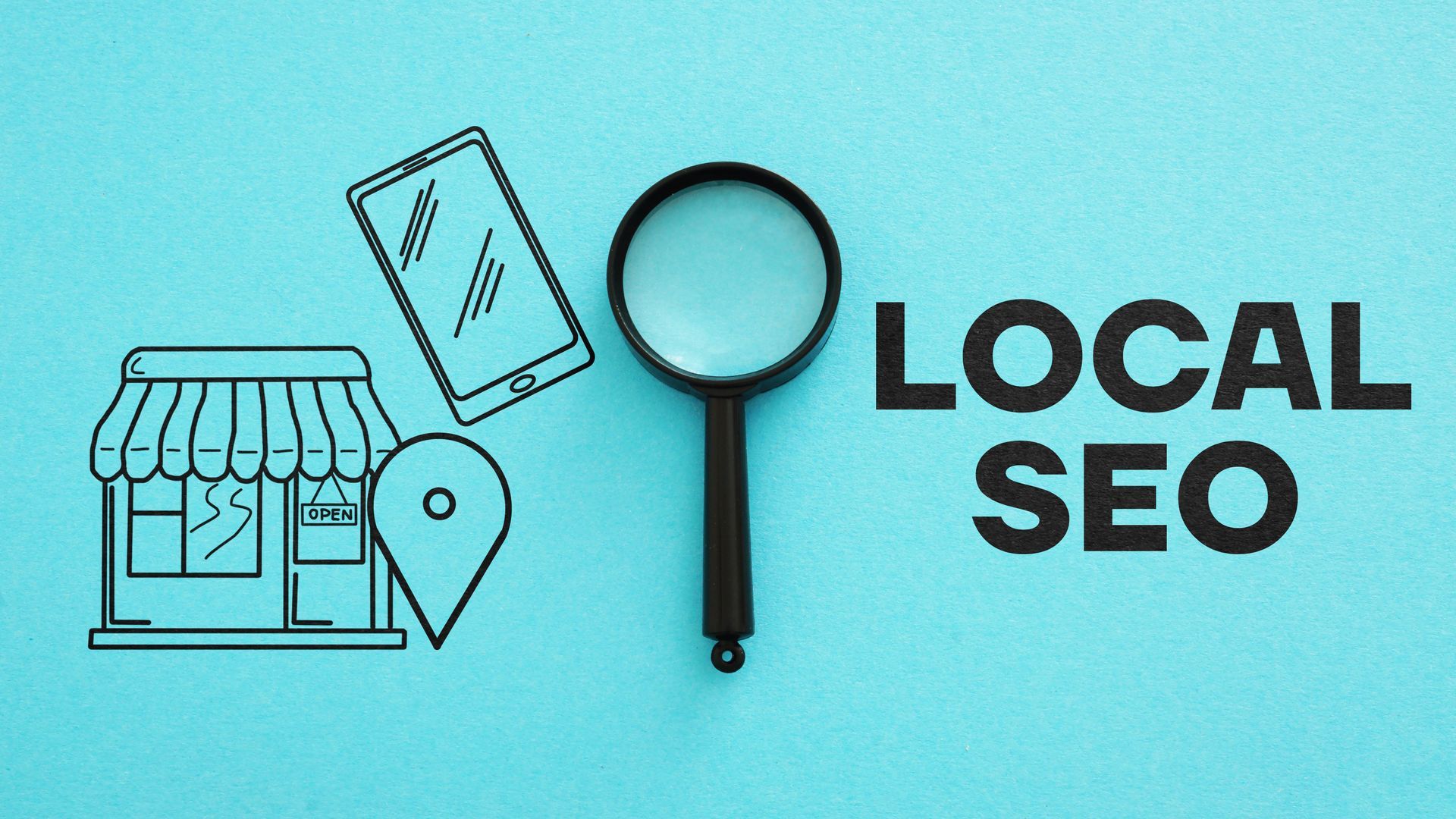How to Create a Winning Marketing Strategy Using Artificial Intelligence: Digital Marketing in an A.I. World
How to Create a Winning Marketing Strategy Using Artificial Intelligence: Digital Marketing in an A.I. World

How to Create a Winning Marketing Strategy Using Artificial Intelligence: Digital Marketing in an A.I. World
Marketing strategy plays a pivotal role in driving business success by effectively reaching and engaging target audiences. As the digital landscape evolves, businesses must adapt and leverage emerging technologies to stay ahead of the competition. One such technology that has revolutionized the marketing landscape is Artificial Intelligence (AI). AI offers immense potential for creating winning marketing strategies that are data-driven, personalized, and efficient.
With AI, businesses can gain deeper insights into customer behavior, automate repetitive tasks, and deliver personalized experiences at scale. It enables marketers to make informed decisions, optimize campaigns, and maximize return on investment (ROI). By harnessing the power of AI, companies can unlock a wealth of opportunities to connect with their audience in more meaningful and impactful ways.
In this article, we will explore the various ways in which AI can be utilized to develop a winning marketing strategy. We will delve into the role of AI in market research, customer personalization, process automation, and performance enhancement. Additionally, we will address ethical considerations surrounding AI adoption in marketing.
Through real-world case studies and practical steps for implementation, this article aims to equip businesses with the knowledge and insights needed to leverage AI effectively in their marketing endeavors. By embracing AI-driven marketing strategies, businesses can gain a competitive edge, foster customer loyalty, and drive sustainable growth in today's dynamic and ever-evolving business landscape.
II. Understanding the Role of Artificial Intelligence in Marketing
Artificial Intelligence (AI) has emerged as a game-changing technology in the field of marketing, revolutionizing how businesses connect with their customers. By harnessing the power of AI, marketers can gain a deeper understanding of their target audience, enhance customer experiences, and optimize their overall marketing strategy. This section aims to provide a comprehensive understanding of the role of AI in marketing and the benefits it brings.
A. Definition and Explanation of AI in Marketing:
AI refers to the development of intelligent machines that can perform tasks that typically require human intelligence, such as learning, problem-solving, and decision-making. In the context of marketing, AI utilizes advanced algorithms and machine learning techniques to process vast amounts of data, extract valuable insights, and automate various marketing processes.
AI in marketing encompasses a wide range of applications, including data analysis, predictive modeling, natural language processing (NLP), image recognition, and more. These AI-powered capabilities enable marketers to make data-driven decisions, deliver personalized content, automate repetitive tasks, and optimize campaign performance.
B. Benefits of Using AI in Marketing Strategy Development:
Incorporating AI into marketing strategies offers numerous benefits that empower businesses to achieve their goals more efficiently. Some key advantages include:
Enhanced Customer Insights: AI enables marketers to gather and analyze vast volumes of customer data, allowing for deeper insights into customer preferences, behaviors, and trends. By understanding their audience better, businesses can create highly targeted and personalized marketing campaigns that resonate with customers on a more individual level.
Automation and Efficiency: AI-powered automation streamlines repetitive marketing tasks, freeing up valuable time for marketers to focus on strategic initiatives. Tasks like data analysis, lead scoring, content generation, and campaign optimization can be automated, resulting in increased efficiency and productivity.
Personalized Customer Experiences: AI algorithms can analyze customer data to create personalized experiences across various touchpoints. By delivering tailored content, product recommendations, and offers, businesses can enhance customer satisfaction, loyalty, and ultimately, drive conversions and sales.
Real-time Decision-making: AI enables marketers to make data-driven decisions in real-time. By continuously monitoring and analyzing campaign performance metrics, AI algorithms can provide insights and recommendations to optimize marketing strategies on the fly, resulting in better outcomes and higher ROI.
Scalability and Adaptability: AI-powered marketing solutions can scale with business needs and adapt to changing market dynamics. As customer preferences and market trends evolve, AI algorithms can quickly adapt to ensure that marketing strategies remain effective and relevant.
In summary, AI plays a vital role in marketing strategy development by providing advanced analytics, automation, personalization, and real-time decision-making capabilities. By leveraging AI in their marketing endeavors, businesses can unlock new opportunities for growth, stay competitive in the digital landscape, and cultivate meaningful connections with their target audience.
III. Conducting Market Research with AI
Market research serves as a foundation for building successful marketing strategies, and Artificial Intelligence (AI) has transformed the way businesses conduct this critical process. By harnessing AI capabilities, marketers can collect, analyze, and derive valuable insights from vast amounts of data, enabling more informed decision-making and targeted marketing efforts. In this section, we will explore how AI can revolutionize market research.
A. Leveraging AI to Collect and Analyze Customer Data:
Data Collection: AI-powered tools can efficiently gather and process massive volumes of customer data from various sources, such as social media, online platforms, surveys, and customer interactions. AI algorithms can automatically extract relevant information, eliminating the need for manual data collection processes and providing marketers with a wealth of valuable data.
Data Analysis: AI algorithms excel at analyzing complex data sets, uncovering patterns, trends, and correlations that might not be easily identifiable through traditional methods. By applying machine learning techniques, AI can identify customer preferences, purchasing behaviors, and market trends, providing actionable insights for marketing strategy development.
B. Utilizing AI-powered Tools for Market Segmentation and Targeting:
Customer Segmentation: AI-driven market segmentation goes beyond traditional demographic categorization. By analyzing various data points, including customer behavior, interactions, and preferences, AI algorithms can identify distinct customer segments based on their unique characteristics and needs. This enables marketers to tailor their marketing messages and campaigns more effectively.
Targeted Marketing: AI helps marketers identify the most promising target audience for their products or services. By analyzing customer data, AI algorithms can determine which segments are more likely to convert, enabling businesses to allocate their marketing resources strategically and focus their efforts on the most lucrative opportunities.
C. Enhancing Customer Insights through Sentiment Analysis and Predictive Analytics:
Sentiment Analysis: AI-powered sentiment analysis allows businesses to understand how customers perceive their brand, products, or services. By analyzing social media posts, customer reviews, and other textual data, AI algorithms can identify sentiments, emotions, and opinions, providing valuable insights into customer satisfaction, brand reputation, and areas for improvement.
Predictive Analytics: AI enables marketers to forecast future customer behavior and trends through predictive analytics. By leveraging historical data and machine learning algorithms, AI can identify patterns and make predictions on customer preferences, purchasing habits, and market shifts. This empowers marketers to proactively adapt their strategies, optimize resource allocation, and stay ahead of the competition.
AI-driven market research provides businesses with a competitive edge by enabling data-driven decision-making, precise customer segmentation, and accurate predictions. By leveraging AI tools and algorithms, marketers can gain deeper insights into customer behavior, refine their targeting strategies, and develop marketing campaigns that resonate with their audience. In the next section, we will explore how AI can personalize customer experiences to drive engagement and loyalty.
IV. Personalizing Customer Experiences with AI
Delivering personalized experiences has become a crucial aspect of modern marketing, and Artificial Intelligence (AI) plays a pivotal role in achieving this level of customization. By leveraging AI algorithms and technologies, businesses can tailor their interactions, content, and recommendations to meet the unique preferences and needs of individual customers. In this section, we will delve into how AI can empower marketers to create highly personalized customer experiences.
A. Utilizing AI Algorithms to Create Personalized Content and Recommendations:
Content Personalization: AI can analyze customer data, such as browsing behavior, purchase history, and demographic information, to dynamically generate personalized content. Through AI-powered recommendation engines, businesses can deliver relevant product suggestions, articles, or promotions that resonate with individual customers, enhancing engagement and conversion rates.
Dynamic Website and App Experiences: AI enables businesses to create dynamic websites and applications that adapt to individual user preferences in real-time. By leveraging AI algorithms, websites and apps can personalize layouts, navigation options, and displayed content based on each user's past interactions and preferences, ensuring a more customized and engaging experience.
B. Implementing AI-Driven Chatbots for Improved Customer Interactions:
Intelligent Chatbot Interactions: AI-powered chatbots utilize natural language processing (NLP) to understand and respond to customer queries and requests. By analyzing customer conversations and historical data, chatbots can provide personalized recommendations, troubleshoot issues, and deliver relevant information in a conversational and efficient manner, enhancing customer satisfaction and engagement.
24/7 Availability and Instant Responses: AI chatbots are available round the clock, allowing businesses to provide instant support and assistance to customers at any time. With AI, chatbots can handle a wide range of inquiries and provide accurate and timely responses, ensuring a seamless customer experience and reducing wait times.
C. Harnessing AI for Dynamic Pricing and Personalized Offers:
Dynamic Pricing: AI algorithms can analyze market trends, competitor pricing, and customer behavior to optimize pricing strategies in real-time. By dynamically adjusting prices based on factors such as demand, inventory levels, and customer segments, businesses can maximize revenue while offering competitive pricing tailored to individual customers.
Personalized Offers and Incentives: AI enables businesses to create personalized offers and incentives based on individual customer preferences and purchase history. By analyzing customer data, AI algorithms can identify upselling and cross-selling opportunities, enabling businesses to deliver targeted promotions and discounts that resonate with each customer, fostering loyalty and driving repeat purchases.
AI-powered personalization empowers businesses to provide unique and tailored experiences for each customer. By leveraging AI algorithms for content personalization, implementing intelligent chatbots, and utilizing dynamic pricing strategies, businesses can enhance customer engagement, satisfaction, and loyalty. In the next section, we will explore how AI can automate various marketing processes, streamlining efficiency and effectiveness.
V. Automating Marketing Processes with AI
In the fast-paced digital landscape, businesses are increasingly turning to Artificial Intelligence (AI) to automate various marketing processes. AI-driven automation not only improves efficiency but also enables marketers to deliver highly targeted campaigns, optimize advertising strategies, and streamline customer engagement. In this section, we will explore the ways in which AI can automate marketing processes, saving time and resources while driving impactful results.
A. Using AI-Powered Tools for Automating Repetitive Tasks:
Data Processing and Analysis: AI algorithms can handle large volumes of data, automating tasks such as data cleaning, formatting, and analysis. By automating these repetitive data-related tasks, marketers can devote more time to strategic decision-making and deriving actionable insights.
Reporting and Dashboards: AI can automate the generation of reports and dashboards, consolidating data from multiple sources and presenting it in a visually appealing and easily understandable format. Marketers can access real-time data and key performance indicators (KPIs), enabling quick and informed decision-making.
B. Optimizing Advertising Campaigns with AI-Driven Algorithms:
Ad Targeting and Optimization: AI algorithms can analyze customer data, behavior patterns, and contextual factors to optimize ad targeting. By leveraging AI, marketers can automatically determine the most relevant audiences for their ads, allocate budgets effectively, and optimize bidding strategies to maximize the return on advertising investment.
Ad Creative Generation: AI-powered tools can automate the creation of ad creatives, tailoring visuals, copy, and formats based on audience preferences and platform requirements. This streamlines the ad creation process, enabling marketers to efficiently test and deploy a variety of creatives to drive better engagement and conversions.
C. Streamlining Email Marketing and Lead Nurturing through AI Automation:
Email Personalization and Automation: AI algorithms can analyze customer data, purchase history, and engagement patterns to deliver highly personalized email content. From automated welcome emails to personalized product recommendations and cart abandonment reminders, AI-driven email marketing automation ensures relevant and timely communication with customers, increasing open rates and conversions.
Lead Scoring and Nurturing: AI algorithms can automatically score and prioritize leads based on predefined criteria and customer behavior. By analyzing interactions, engagement levels, and conversion potential, AI-driven lead nurturing workflows can deliver targeted content and tailored communications to move leads through the sales funnel more effectively.
AI-powered automation frees up marketers' time and resources by taking care of repetitive tasks, allowing them to focus on strategic activities that require human creativity and critical thinking. By automating data processing, optimizing advertising campaigns, and streamlining email marketing and lead nurturing, businesses can achieve higher efficiency, scalability, and better campaign performance. In the next section, we will explore how AI enhances marketing performance through real-time data analysis and decision-making.
VI. Enhancing Marketing Performance through AI
Artificial Intelligence (AI) has the power to revolutionize marketing performance by providing real-time data analysis, actionable insights, and optimized decision-making. By harnessing AI algorithms and technologies, businesses can unlock the potential for increased efficiency, improved targeting, and better return on investment (ROI). In this section, we will explore how AI enhances marketing performance across various aspects of the marketing landscape.
A. Applying AI for Real-time Data Analysis and Decision-making:
Real-time Data Analytics: AI enables marketers to process and analyze large volumes of data in real-time. By leveraging AI algorithms, businesses can gain insights into customer behavior, campaign performance, and market trends as they happen, allowing for agile decision-making and prompt adjustments to marketing strategies.
Predictive Analytics: AI algorithms can utilize historical data and machine learning techniques to predict future outcomes and trends. Marketers can leverage these predictive analytics capabilities to anticipate customer preferences, forecast demand, and optimize resource allocation, resulting in more effective marketing strategies and improved campaign performance.
B. Optimizing Marketing Budgets and ROI Using AI Algorithms:
Budget Allocation: AI-powered algorithms can optimize marketing budget allocation across various channels and campaigns. By analyzing historical data, customer behavior, and conversion patterns, AI can recommend the most effective distribution of marketing budgets, maximizing the impact and ROI of marketing efforts.
Campaign Optimization: AI algorithms continuously monitor and analyze campaign performance metrics, such as click-through rates, conversion rates, and engagement levels. By leveraging this real-time analysis, AI can identify underperforming areas, detect patterns, and make data-driven recommendations for campaign optimization. Marketers can then implement these insights to improve targeting, messaging, and overall campaign effectiveness.
C. Improving Conversion Rates with AI-based Conversion Optimization:
Conversion Rate Optimization (CRO): AI-powered tools can conduct A/B testing and multivariate testing to optimize website layouts, landing pages, and call-to-action elements. By analyzing user behavior and engagement patterns, AI algorithms can identify the most effective variations, resulting in improved conversion rates and overall website performance.
Personalized Conversion Strategies: AI enables marketers to deliver personalized conversion strategies based on individual customer preferences, behaviors, and needs. By analyzing customer data and utilizing machine learning algorithms, businesses can tailor the conversion journey, providing relevant content, offers, and incentives to increase the likelihood of conversion.
AI-driven marketing performance enhancement empowers businesses to make data-driven decisions, optimize resource allocation, and continuously improve campaign effectiveness. By leveraging real-time data analysis, predictive analytics, optimized budget allocation, and personalized conversion strategies, marketers can achieve higher conversion rates, better ROI, and long-term business growth. In the next section, we will address ethical and privacy concerns associated with AI in marketing.
VI. Enhancing Marketing Performance through AI
Artificial Intelligence (AI) has the power to revolutionize marketing performance by providing real-time data analysis, actionable insights, and optimized decision-making. By harnessing AI algorithms and technologies, businesses can unlock the potential for increased efficiency, improved targeting, and better return on investment (ROI). In this section, we will explore how AI enhances marketing performance across various aspects of the marketing landscape.
A. Applying AI for Real-time Data Analysis and Decision-making:
Real-time Data Analytics: AI enables marketers to process and analyze large volumes of data in real-time. By leveraging AI algorithms, businesses can gain insights into customer behavior, campaign performance, and market trends as they happen, allowing for agile decision-making and prompt adjustments to marketing strategies.
Predictive Analytics: AI algorithms can utilize historical data and machine learning techniques to predict future outcomes and trends. Marketers can leverage these predictive analytics capabilities to anticipate customer preferences, forecast demand, and optimize resource allocation, resulting in more effective marketing strategies and improved campaign performance.
B. Optimizing Marketing Budgets and ROI Using AI Algorithms:
Budget Allocation: AI-powered algorithms can optimize marketing budget allocation across various channels and campaigns. By analyzing historical data, customer behavior, and conversion patterns, AI can recommend the most effective distribution of marketing budgets, maximizing the impact and ROI of marketing efforts.
Campaign Optimization: AI algorithms continuously monitor and analyze campaign performance metrics, such as click-through rates, conversion rates, and engagement levels. By leveraging this real-time analysis, AI can identify underperforming areas, detect patterns, and make data-driven recommendations for campaign optimization. Marketers can then implement these insights to improve targeting, messaging, and overall campaign effectiveness.
C. Improving Conversion Rates with AI-based Conversion Optimization:
Conversion Rate Optimization (CRO): AI-powered tools can conduct A/B testing and multivariate testing to optimize website layouts, landing pages, and call-to-action elements. By analyzing user behavior and engagement patterns, AI algorithms can identify the most effective variations, resulting in improved conversion rates and overall website performance.
Personalized Conversion Strategies: AI enables marketers to deliver personalized conversion strategies based on individual customer preferences, behaviors, and needs. By analyzing customer data and utilizing machine learning algorithms, businesses can tailor the conversion journey, providing relevant content, offers, and incentives to increase the likelihood of conversion.
AI-driven marketing performance enhancement empowers businesses to make data-driven decisions, optimize resource allocation, and continuously improve campaign effectiveness. By leveraging real-time data analysis, predictive analytics, optimized budget allocation, and personalized conversion strategies, marketers can achieve higher conversion rates, better ROI, and long-term business growth. In the next section, we will address ethical and privacy concerns associated with AI in marketing.
VIII. Steps to Implement an AI-Driven Marketing Strategy
Implementing an AI-driven marketing strategy requires a systematic approach that aligns with business objectives and maximizes the benefits of AI technologies. By following a well-defined implementation plan, businesses can effectively integrate AI into their marketing efforts. In this section, we will outline key steps to successfully implement an AI-driven marketing strategy.
A. Identify Specific Marketing Goals and Objectives:
Clearly define your marketing goals and objectives. Determine the areas where AI can have the most significant impact, such as customer personalization, campaign optimization, or data analysis. Align these goals with your overall business strategy to ensure coherence and relevance.
B. Assess Available AI Technologies and Tools:
Conduct thorough research to identify AI technologies and tools that align with your marketing goals. Evaluate their features, capabilities, scalability, and compatibility with existing systems. Consider factors such as cost, ease of implementation, and potential return on investment (ROI) when selecting the most suitable AI solutions.
C. Plan and Execute a Phased Implementation Approach:
Break down your AI implementation into manageable phases. Start with a pilot project or a small-scale implementation to test the effectiveness and feasibility of the chosen AI technology. Learn from this initial phase and refine your approach before scaling up.
Develop a comprehensive implementation plan that outlines key milestones, timelines, resource requirements, and responsibilities. Collaborate with cross-functional teams, including marketing, IT, and data analytics, to ensure seamless integration and alignment.
D. Acquire and Prepare Relevant Data:
Identify the types of data required to drive AI-powered marketing initiatives. Ensure you have access to clean, relevant, and reliable data sources. Develop data collection and storage mechanisms that comply with privacy regulations and ethical considerations.
Prepare the data for AI analysis by organizing, cleaning, and normalizing it. Data quality is crucial for accurate AI-driven insights and predictions.
E. Build and Train AI Models:
If applicable, develop AI models tailored to your marketing needs. Collaborate with data scientists, AI experts, or utilize AI platforms that facilitate model development. Train the AI models using historical data and refine them iteratively to improve accuracy and performance.
F. Monitor, Measure, and Optimize:
Continuously monitor and measure the performance of AI-driven marketing initiatives. Assess key performance indicators (KPIs) such as customer engagement, conversion rates, and ROI. Utilize AI analytics tools to gain real-time insights and identify areas for optimization.
Iteratively refine and optimize your AI-driven marketing strategy based on data-driven insights. Continuously learn from customer interactions and adapt your approach to maximize effectiveness.
By following these steps, businesses can successfully implement an AI-driven marketing strategy. Remember, AI implementation is an ongoing process that requires continuous evaluation, learning, and adaptation. Embrace the transformative potential of AI to achieve marketing excellence and gain a competitive edge in today's dynamic business landscape.
In the final section, we will summarize the benefits and potential of AI in marketing strategy and encourage businesses to embrace AI for a winning marketing approach.
In today's rapidly evolving digital landscape, leveraging Artificial Intelligence (AI) has become paramount for creating winning marketing strategies. AI offers businesses the opportunity to gain deeper customer insights, personalize experiences, automate processes, and optimize performance. By embracing AI in their marketing endeavors, businesses can unlock a wealth of opportunities to connect with their target audience in meaningful and impactful ways.
Through AI, businesses can conduct market research more efficiently, segment and target their audience with precision, and gain actionable insights through sentiment analysis and predictive analytics. AI also enables businesses to deliver personalized customer experiences by tailoring content, implementing intelligent chatbots, and utilizing dynamic pricing and personalized offers.
Furthermore, AI automates various marketing processes, streamlining efficiency and effectiveness. It optimizes advertising campaigns, automates repetitive tasks, and enhances email marketing and lead nurturing. With AI, businesses can make data-driven decisions, optimize budgets, and improve conversion rates through personalized conversion strategies.
While implementing AI, it is crucial to address ethical and privacy concerns. Ensuring transparency, obtaining proper consent, and safeguarding customer data are key considerations for responsible AI implementation in marketing.
By following a systematic implementation approach and integrating AI technologies strategically, businesses can enhance marketing performance, achieve higher conversion rates, and maximize return on investment. AI-driven marketing strategies enable businesses to stay competitive, foster customer loyalty, and drive sustainable growth in today's dynamic business landscape.
In conclusion, the benefits of AI in marketing strategy are vast and promising. Embracing AI empowers businesses to unlock new possibilities, drive meaningful customer engagement, and gain a competitive edge. As AI continues to advance, businesses that embrace this transformative technology will thrive in the digital age. Embrace AI, innovate your marketing strategies, and position your business for success in the ever-evolving marketing landscape.










